Former ASIC chair James Shipton’s epic fight to reclaim his future
The former ASIC chair is taking on new roles after an extraordinary battle against the system that awarded him one of its key leadership positions.

In October 2020, amid a raging pandemic, then-ASIC chairman James Shipton was working from home in inner-city Melbourne when an incoming email caught his eye.
As he surveyed its contents, any hope of a truce was extinguished in the simmering row over ASIC’s reimbursement of Shipton’s relocation expenses from the US, notably $118,557 in tax advice from KPMG.
The email, initially from the office of the Auditor-General Grant Hehir but forwarded to Shipton by ASIC, contained an excoriating, three-page letter from Hehir to Josh Frydenberg, advising that the KPMG payments may have breached procurement guidelines and exceeded public sector limits.
Hehir said the issues were of such importance that direct contact with the Treasurer was necessary to “gain greater confidence that appropriate action would be taken”.
Shipton is understated to the point where you can almost miss the telltale signs of boiling anger or frustration.
He remains outwardly calm but still “surprised” that Hehir’s letter became public the next day, helpfully added to a Frydenberg press release announcing that Vivienne Thom, a former Inspector-General of Intelligence, would undertake an independent review of the payments.
“I understand it was a highly confidential letter, I was never told it would be made public, and I wasn’t given an opportunity to respond before publication,” he tells The Australian in his first interview since the so-called ASIC expenses “scandal”.
“A senior ASIC officer told me at the time that the letter could not have been written in a more damaging way.”
Hehir’s letter changed the course of an unblemished professional career and pitched the conduct regulator into a rolling crisis. But the way Shipton and his lawyers see it, Hehir made unspecified, broad-brush allegations that the payments related to the “stewardship by the accountable authority (Shipton) of taxpayer resources, particularly with respect to payments made to the benefit of the accountable authority”.
The allegations lacked detail, were “highly prejudicial”, and the damage was compounded by giving Shipton limited notice and no opportunity to respond.
Almost two years after his bruising encounter with Canberra-style bureaucratic governance, which included a brief return as ASIC chair after Frydenberg ruled there was no misconduct, Shipton is gradually re-immersing himself in professional life.
In May, he popped up on the board of share trading platform Superhero, and more recently became a senior fellow at the University of Melbourne’s school of government.
“I took a 12-month break, which I believe is best practice to ensure the information I had was stale,” he says with some finality.
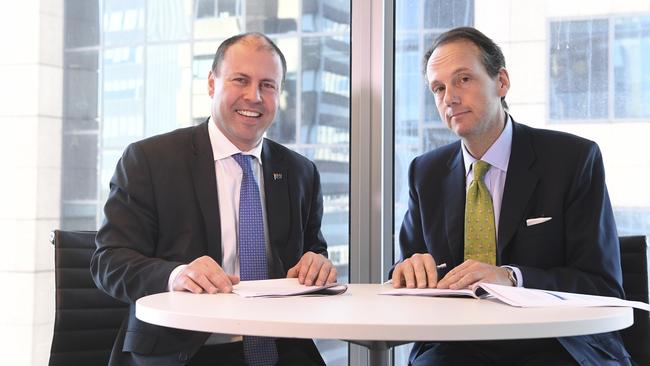
Despite prompting, he falls silent on Frydenberg landing a job at Goldman Sachs only months after losing his seat of Kooyong in the May federal election.
His reticence is unsurprising – the last thing Shipton wants is to be defined by his ASIC experience.
Google’s search function has other ideas, of course, so he practises a level of resigned acceptance, while maintaining an interest in reforms to improve public-agency governance and accountability. Among the many changes he now advocates is for the Albanese government’s proposed national integrity commission to take on responsibility for contentious administrative cases like the one he fought.
“I had concerns about the fairness of the process and those concerns have not diminished over time,” Shipton says.
“If you depoliticise the process, it won’t be influenced by political considerations.”
The former ASIC chief also takes aim at the overlapping accountability arrangements for the nation’s financial regulators, which is now undertaken by “multiple bodies”.
He calls on the new parliament to carefully consider and redefine oversight responsibilities so they can co-ordinate with the new Financial Regulator Assessment Authority, which has chosen ASIC for its opening review.
Elsewhere, Shipton is a fan of governments issuing a statement of expectations for each regulator, despite having received only one in April 2018 from the Turnbull government.
Governments, he says, should be clear on their expectations, and not allow them to lose meaning or relevance.
“Having no statement of expectations is equivalent to Qantas asking a pilot to fly a plane without informing them of the destination,” Shipton says.
“Running a regulatory agency should not be a mystery flight.”
Perhaps most importantly, Shipton sees a huge irony in the agency charged with responsibility for overseeing corporate governance having its own confused governance arrangements.
One example is that, under two pieces of legislation, ASIC has three governing bodies – the commission (including the chair), the chair (who has unique procedural powers) and the accountable authority (also the chair).
Shipton says ASIC made a genuine attempt in his term to streamline this quagmire, and the Morrison government’s last statement of expectations also addressed the issue.
However, this was no substitute for a considered review.
Shipton’s response to the Hehir letter, dated October 22, and Frydenberg’s press release the next day, was immediate.
He rang the Treasurer, intending to step aside.
Frydenberg didn’t pick up so Shipton texted him with the same offer, prompting an immediate return call.
The next obligation to clear was a 12.30pm virtual appearance with senior ASIC officials before the House economics committee.
Shipton quickly typed out a statement, saying ASIC acknowledged that the processes supporting the approval of his relocation expenses were inadequate, and it should have reacted more promptly to an issue first raised in the Auditor-General’s 2018-19 closing report.
He also said that, in “holding myself to the highest possible standard”, it was appropriate to reimburse ASIC for his KPMG tax advice and step aside pending completion of the Thom review.
In any discussion of the expenses issue, Shipton regularly returns to the theme of procedural fairness, pointing out that the treatment of some unelected officials contrasts sharply with others, and even more noticeably with elected officials. He knows of cases where very senior public servants have also been put through the wringer of a formal review or investigation but the whole process has been shrouded in impenetrable layers of secrecy.
As for elected officials, he won’t name names, but politicians like Bridget McKenzie (sports rorts), Alan Tudge (undisclosed settlement with former staffer) and Christian Porter (blind trust donation controversy) readily spring to mind.
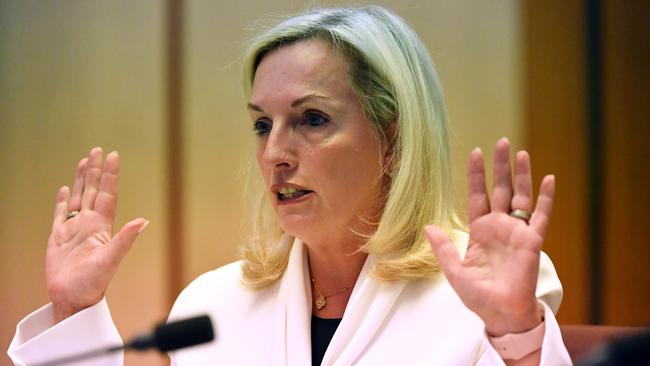
It’s hard to conceive of a more politically charged environment than late 2020 to stoke outrage over an ASIC expenses row, involving no less a figure than the chairman himself.
The day before Frydenberg pumped out his press release, Australia Post chief executive Christine Holgate, in her words, became “roadkill” for Scott Morrison after gifting four Cartier watches worth $20,000 in 2018 to high-performing senior executives.
Holgate and Shipton were helpful diversions as the Morrison government continued to deal with the radioactive fallout from paying $30m for a block of land at the new Western Sydney airport that was later valued at only $3m.
While “somewhat preoccupied” with his own affairs at the time and unwilling to comment on the Holgate saga, Shipton says the way she was treated and his own experience would surely make well-qualified Australians working offshore “think twice before returning to serve the community”.
ASIC, however, was already in Canberra’s crosshairs well before the Shipton expenses saga.
As 2020 panned out, there was extreme policy whiplash, with Ken Hayne sermonising about responsible lending in the financial services royal commission and an approach of making credit available at all costs once the pandemic hit.
A responsible lending case brought by Shipton’s predecessor against Westpac captured the spirit of the times.
Federal Court judge Nye Perram ruled in Westpac’s favour in the famous “wagyu and shiraz” judgment in 2019, saying that a customer’s current living expenses were not an important indicator of whether they could afford a loan because expenses could be cut if necessary.
The full Federal Court slapped down an ASIC appeal in June 2020, by which time the Morrison government was seeing the banking industry as part of the Covid solution, not the villain of the royal commission.
Behind the scenes, as the regulator weighed up a High Court appeal, Reserve Bank governor Philip Lowe and Treasury secretary Steven Kennedy reportedly spoke with Shipton, arguing that a successful appeal could impede lending and the Covid recovery.
Shipton informed his fellow ASIC commissioners about the meeting and briefed them after it, leading to a unanimous vote by the commission in July against an appeal.
The upshot was that the responsible lending law is still in the statute books, but the hardship test to enforce it is governed by Justice Perram’s “wagyu and shiraz” ruling. Shipton will only say this: “In the middle of a pandemic, it was the right decision in the circumstances. But I’m pleased the law still exists because it’s designed for circumstances similar to what we have now – high interest rates, high inflation and a possible economic slowdown, which could result in household hardship.”
Responsible lending wasn’t the only beef Frydenberg had with ASIC. As far back as mid-2019, the regulator hired an organisational psychologist to observe the culture and boardroom behaviour inside 21 major companies.
Shipton says it’s an “innovative regulatory approach” used in other advanced economies, similar to close and continuous monitoring where ASIC sent staff into companies to examine their culture and decision-making processes.
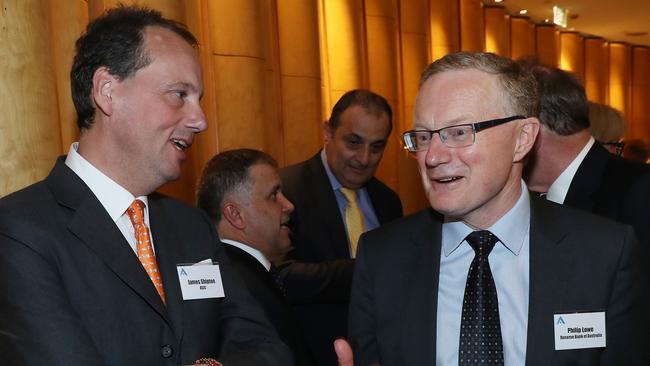
Frydenberg evidently had a very different view, framed around his conviction that ASIC had lost its way and was now in the business of usurping parliament’s role as policymaker.
Seemingly well-sourced reports emerged at the time of Thom’s appointment in October 2020 that the Treasurer had decided months before that improvements had to be made to ASIC’s regulatory approach and its overlapping leadership structure.
There was an irony here – if ASIC had confused reporting lines, they partly stemmed from Frydenberg poaching Karen Chester from the Productivity Commission to become ASIC deputy chair, causing a division of responsibilities with two other commissioners.
In November 2020, while Thom was ploughing through her review of Shipton’s expenses, Frydenberg launched a public broadside against the regulator.
He said a principles-based responsible lending framework had transformed into an overly prescriptive set of obligations with almost 100 pages of regulatory guidance.
Lenders had become increasingly “risk-averse and conservative”, while borrowers were facing a longer and more intrusive approval process “irrespective of their financial circumstances”. Frydenberg then left no doubt that ASIC was cooked.
“Regulators do not carry out their mandates in a vacuum,” he said. “They must pursue their mandates in a manner that is consistent with the will of parliament; it is the parliament who determines who and what should be regulated.”
Shipton, meanwhile, had acted on his initial reservations about a lack of procedural fairness.
To say he “lawyered up” would be grossly unfair – he did much more than that, amassing a formidable legal team headed by commercial silks Jim Peters and Philip Crutchfield, a junior barrister Nicholas Walter and King & Wood Mallesons partner Dominic Gatto.
They were primed for battle if Frydenberg tried to remove Shipton as ASIC chair without evidence that the expenses row met the required standard of misbehaviour or mental incapacity to trigger dismissal rights.
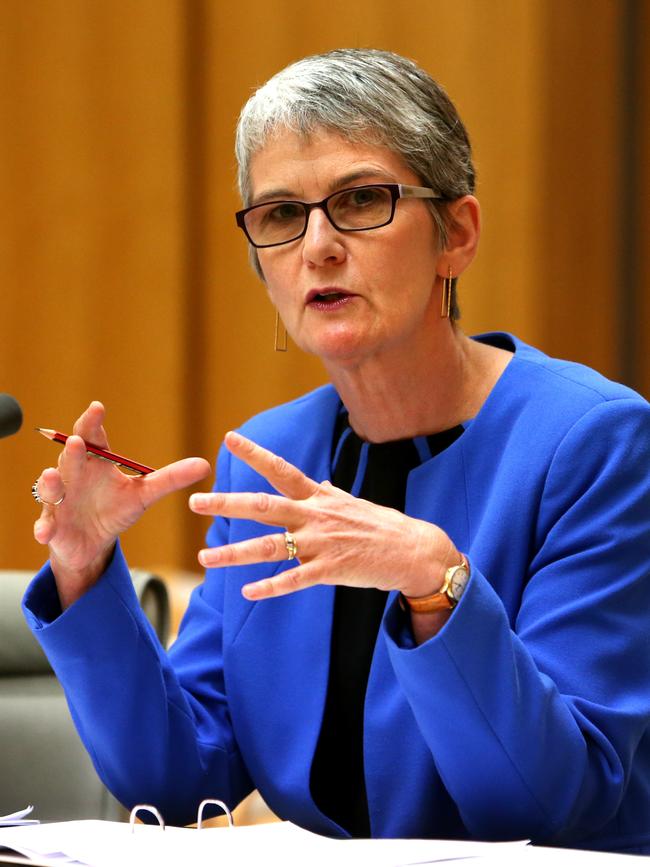
On December 17, delivery of the Thom report to Treasury secretary Kennedy passed without incident, at least publicly. Behind the scenes, hand-to-hand legal combat was well under way.
A week before, Thom sent her draft findings to Shipton for comment, giving him less than three business days to comment on more than 100 pages of material.
The response from Mallesons, on behalf of Shipton, was withering: “In substance, it is our submission that the draft report does not accord Mr Shipton procedural fairness, misdirects itself on the correct test to apply, erroneously applies the wrong test, is flawed as to the facts and improperly draws conclusions of law.”
Not only did Thom never respond, but Shipton was never sent a copy of the final report.
Shipton, who has worked in the US and Hong Kong, says he has been to the international relocation rodeo several times, and generous packages to move offshore are standard. Astonishingly, there was no employment contract for the job of ASIC chair, but he insists that the relocation arrangements were in line with two private sector packages he had previously negotiated.
Numerous reports support this, including one from the Australian Government Solicitor dated August 17, 2020 which says the tax expenses were “incurred on geographic relocation” and therefore excluded from the chair’s total remuneration.
“The documents also indicate that the reason for the delay was because relevant documents had been lost during the relocation by the removalists that had been engaged by ASIC, and it had taken time to obtain replacement documents from the US,” the AGS said.
“We understand ASIC paid the invoiced amounts, in accordance with the previously agreed process.”
Shipton also says KPMG’s work was often dressed up as complex, high-level tax advice for investments in bonds, hedge funds and the like.
The truth was far less exotic – it mainly covered capital gains tax advice related to a family home in Hong Kong.
Ultimately, Thom made no adverse findings against Shipton.
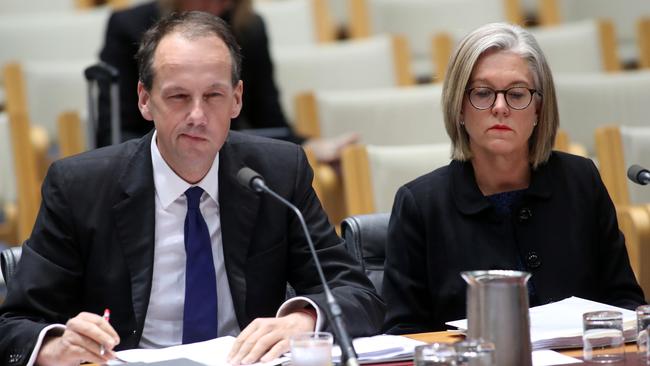
On January 29, Frydenberg said he was satisfied after taking supplementary legal advice that there were “no instances of misconduct”, despite Thom saying it was open to Treasury to seek advice about whether Shipton breached relevant codes of conduct.
She also concluded there was an agreement between Shipton and the commonwealth to pay for some tax advice, but it couldn’t possibly have been uncapped.
“While in practice it is clear that the costs were not specified or capped, based on the estimates sought and provided at the early stages, a reasonable payment for the additional costs for tax returns would have been approximately up to $11,750,” she said.
Treasury, for its part, is understood to have offered to pay Shipton $350,000-$500,000 in total relocation costs, of which he drew down less than $250,000 after skimping on accommodation by initially staying with his mother.
He says he naturally asked for an employment contract or a relocation handbook, which is standard for multinational companies.
“But I was told that statutory office holders don’t have contracts because the terms and conditions are set by the Remuneration Tribunal,” he says.
“Every official I spoke to, including recruitment consultants and people in Canberra, told me that the relocation arrangements would be equivalent to international practice.”
The whole thing was just a mess and it would really have helped if there had been some well-established rules and processes, but of course there was no such thing.
The deal between the warring parties, which resulted in Shipton returning to his old job until a successor was found, was reportedly hammered out on January 28.
Frydenberg and Kennedy dialled in Shipton in Melbourne, with the Treasurer then calling in acting ASIC chair Chester to brief her on the peace deal.
Suffice it to say that Shipton and Chester, who aspired to the top job, are not close, but Frydenberg asked them to bury the hatchet and work together in the best interests of ASIC.
A few months later, in March, she told a conference in Sydney that “James and I were always as one”.

This was a bold statement considering Chester’s evidence to a parliamentary committee as acting ASIC chair in November 2020, when she said: “if there had been full disclosure of the nature and form of the payments made to … Mr Shipton to the commissioners here today, I don‘t think I’d be having this discussion with you today”.
Asked about the apparent contradiction, Shipton smiles enigmatically.
The two statements, he says, are “inconsistent and irreconcilable”.
Recalling the highs and lows of his three-year tenure, Shipton says he confronted three significant external events – the royal commission, the pandemic and the expenses issue with the Auditor-General.
“But I’m proud of what we were able to achieve and I’m proud of the transition to new leadership,” he says. “Those three events meant I couldn’t implement some of the regulatory approaches I developed at Harvard (in 2016-18 while executive director of the university’s program on international financial systems).
“But we held the organisation together when it was under tremendous criticism in the royal commission and the press, and restored trust in the financial system.
“Then the pandemic came and we turned the organisation on a dime to maintain trust and confidence in the system.”
ASIC never suffers from a shortage of critics, and Shipton’s term has not – and will not – be spared. But the narrative is much broader than a row over an expenses claim, which in comparable packages counts for little more than chump change.
–
Key events in the Shipton relocation expenses drama
• 2018 – James Shipton relocates from the US to become ASIC chairman.
• August 2019 – The final KPMG bill for tax advice to Shipton comes in at $118,557.
• August 10, 2020 – First notification to Shipton that the Auditor-General was considering tax support related to the ASIC chair’s relocation.
• August 18, 2020 – ASIC sends Auditor-General advice from Australian Government Solicitor, law firm Minter Ellison and an explanation from KPMG that Shipton’s tax expense did not exceed the Remuneration Tribunal’s determination.
• September 25, 2020 – Shipton informed for the first time of Auditor-General’s concerns, including that his tax expense may have exceeded the Remuneration Tribunal’s determination.
• October 12, 2020 – Shipton writes to ASIC, voluntarily offering to repay the money he claimed for KPMG tax advice.
• October 22, 2020 – Auditor-General issues final letter to Josh Frydenberg, which includes for the first time a broad allegation relating to the “stewardship by the accountable authority (Shipton)”. No details are provided. Morrison also attacks Australia Post chief executive Christine Holgate in parliament over the “Cartier watches” affair.
• October 23, 2020 – Frydenberg announces that Vivienne Thom will conduct an independent review of Shipton’s tax expense. Shipton steps aside for duration of the review.
• December 17, 2020 – Thom submits final report to Treasury secretary Steven Kennedy.
• December 21, 2020 – Shipton’s law firm, King & Wood Mallesons, write to Treasury, raising concerns about the legal and factual deficiencies in the Thom inquiry, as well as lack of procedural fairness.
• January 29, 2021 – Frydenberg announces outcome of the review – Shipton returns as ASIC chairman after Treasurer says he is satisfied there is no misconduct.
• 2022 – Shipton returns to professional life, becoming director of share trading platform Superhero and a senior fellow at the University of Melbourne school of government.





To join the conversation, please log in. Don't have an account? Register
Join the conversation, you are commenting as Logout